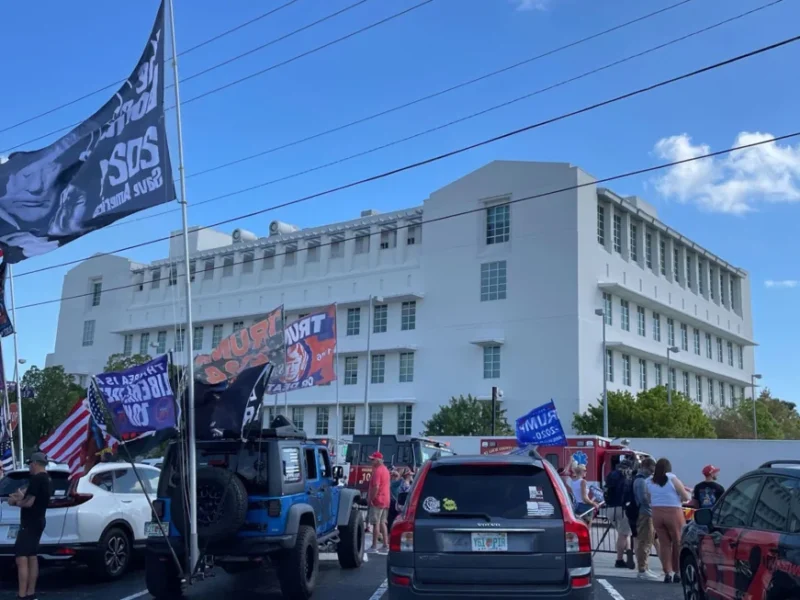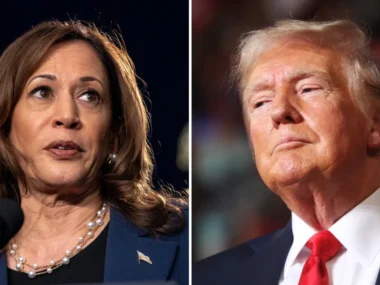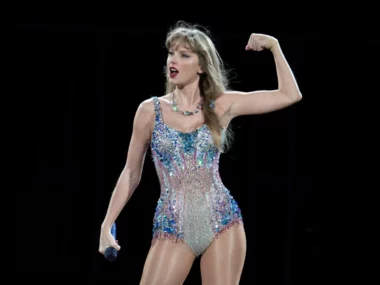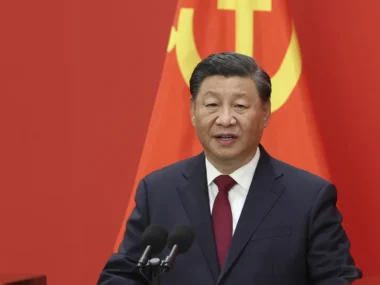Closed-door hearings in the classified documents criminal case involving Donald Trump and others are intensifying on Monday, focusing on access to crucial evidence that could impact whether the former president faces trial before the November election.
Trump arrived at the federal courthouse in Fort Pierce, Florida, on Monday morning for a closed-door session with Judge Aileen Cannon, where prosecutors were absent, to discuss the case’s intricacies. He departed shortly after 2 p.m. ET, acknowledging a crowd from his vehicle.
Special counsel Jack Smith’s team is set to confer with Cannon later in the afternoon, with neither session open to the public.
Defense attorneys will advocate for access to classified evidence that they or their clients have not yet viewed, a matter contested by prosecutors and intelligence agencies who may only provide summaries due to the sensitive nature of the information, as per court records.
While much of the recent Mar-a-Lago documents case proceedings have remained confidential, both prosecution and defense teams have been diligently preparing for trial.
Defense teams have been working tirelessly, including on Super Bowl Sunday, readying motions and reviewing evidence in a sensitive compartmented information facility (SCIF) in Florida. They also face an impending deadline for court filings in less than two weeks, while continuing to explore avenues to delay the trial and dispute prosecutors over disclosing witness names prematurely.
Cases involving classified evidence demand meticulous oversight by the judge to ensure that defense teams can access necessary evidence without compromising national security. This often entails protracted court proceedings to determine which classified evidence can be disclosed to defense lawyers and defendants. Given the complexities of Trump’s case, the involvement of multiple defendants, and the volume of classified records involved, delays are plausible.
An upcoming hearing on March 1 with Judge Cannon is expected to address whether the trial can proceed as scheduled in May. The Justice Department has indicated that over 5,500 pages of documents are being withheld from Trump’s co-defendants, Walt Nauta and Carlos De Oliveira, much of which they, along with Trump and his legal team, can review in a SCIF.
These records, mostly bearing classified markings, were discovered by the FBI in boxes at Mar-a-Lago in August 2022. Attorneys for Nauta and De Oliveira argue for increased access to adequately assess their defenses, a matter likely to be deliberated during Monday’s sealed proceedings.
A smaller set of records is also restricted from Trump and his lawyers due to national security concerns. Judge Cannon has previously heard arguments from the special counsel’s office and reviewed sworn statements from intelligence agencies regarding the necessity of keeping certain records confidential even from defense teams.
At a later stage, Cannon will determine which evidence is essential for a public trial and how it can be presented.
Discussions regarding the safety of witnesses and potential delays.
The tensions surrounding the Mar-a-Lago case extend beyond the issue of defense teams’ access to evidence. The special counsel’s office is pushing to withhold the names of potential witnesses who may testify against Trump during the trial, citing concerns about possible harassment. These witnesses encompass government personnel from the National Archives, over 20 FBI agents involved in the Mar-a-Lago search, individuals with ties to Trump and his co-defendants, as well as other career civil servants. Special Counsel Smith highlighted various threats against judges, prosecutors, and witnesses, including a social media threat directed at a witness that is currently under federal investigation.
While details about the closed-door disputes between Trump, his co-defendants, and the special counsel remain limited, the former president has expressed his belief that the ongoing discussions surrounding discovery and classified information should lead to a postponement of the trial set to commence in May.
Trump’s efforts to delay the trial have been evident in recent legal maneuvers. Special Counsel Smith expressed frustration with these efforts, accusing the defense of employing tactics to prolong the adjudication of the charges against them by a fair and impartial jury.
Smith contends that Trump is leveraging a series of forthcoming legal challenges, including attempts to trim portions of the charges or seek dismissal of the case, as part of his strategy to delay the trial. Major filings from the defense are expected on February 22, with the defense team aiming to postpone some submissions until later, citing their reliance on Judge Cannon’s ruling regarding access to classified records.











